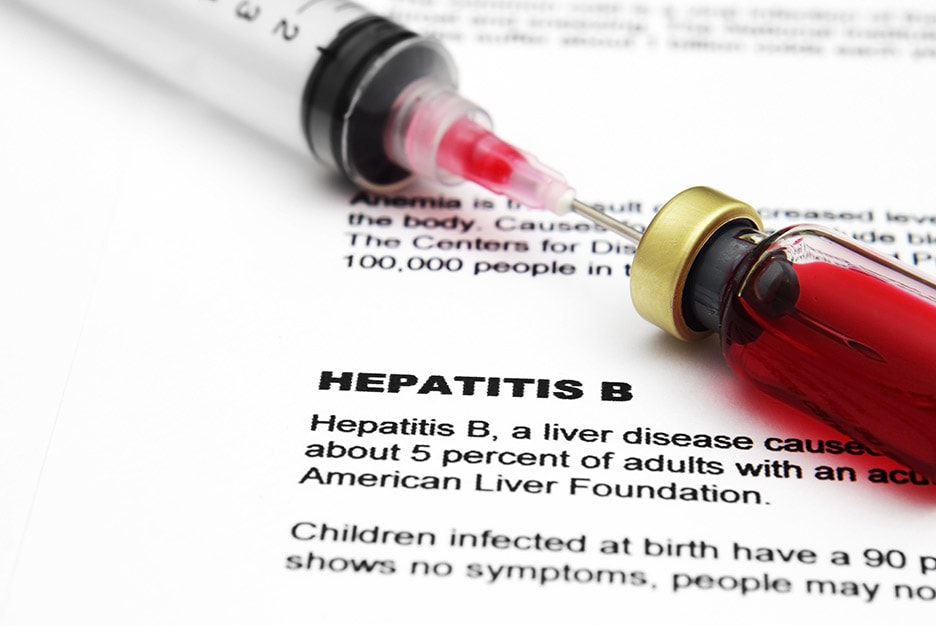Do You Have These Hepatitis B Symptoms?
Known as a “silent infection”, you may not even know that you have hepatitis B. Watch out for these hepatitis B symptoms.
Even though they have hepatitis B, more than 69 percent of the affected individuals face no hepatitis B symptoms at all. Moreover, another 30 percent may see hepatitis B symptoms but confuse it with symptoms of other common afflictions such as the flu. Only about 1 percent of people who have hepatitis B will go on to develop a life-threatening form of the condition called fulminate hepatitis.

This infectious disease is caused by the HBV or Hepatitis B Virus. In general, there are two possible stages of this condition which are acute hepatitis B and chronic hepatitis B. Acute refers to the fact that the infection is in its nascent stages. If they do come up, most people notice hepatitis B symptoms within 1 to 4 months after coming into contact with the virus. Most cases of acute hepatitis B get resolved after the hepatitis B symptoms disappear in about a few weeks or months. Chronic hepatitis B, on the other hand, describes an HBV infection that lasts longer than 6 months at a time. Once the infection reaches the chronic stage, the hepatitis B symptoms may never disappear completely. Children are at a much higher risk of developing chronic hepatitis B symptoms.
Why You Need to Know About Hepatitis B Symptoms?
Recognized as the most common liver infection of a serious nature in the world, most affected people in the United States fall within the age group of 20 to 50 years. The primary function of the liver is to filter out all the toxins in the blood. However, the liver is a multi-faceted organ that also serves to store energy, aid digestion, create infection-fighting substances, and even control bleeding. Though the liver tends to heal itself fairly easily, chronic hepatitis B symptoms could lead to permanent damage of the liver and liver cirrhosis. In case of liver failure, the only possible treatment option is a liver transplant. Furthermore, chronic hepatitis B symptoms could also lead to hepatocellular carcinoma, a type of liver cancer. Studies show that approximately 15 to 25 percent of people with HBV die of liver diseases. Considering all these factors, it is important for you to know about the common hepatitis B symptoms so you can watch out for them, and get treated before matters get worse.
What are the Common Hepatitis B Symptoms?
While more than half of the people who have the virus never see any hepatitis B symptoms, those who do often face symptoms that are similar to the flu. These hepatitis B symptoms include:
- A loss of appetite
- Constant fatigue or feeling of tiredness
- Vomiting and nausea
- Pain in the liver
- An itching sensation all over the body
- Cola- or tea-colored urine that is much darker than normal
- Graying or clay-colored stools
- Jaundice which causes yellowing of the skin and the whites of the eyes
It is important to remember that other forms of viral hepatitis such as A and C also cause symptoms that are similar to hepatitis B symptoms.
If you see hepatitis B symptoms such as extreme lethargy or sleepiness, confusion, hallucinations, fatigue-related collapse, abdominal swelling, and jaundice, you may have fulminate acute hepatitis B that needs to be treated immediately. If not treated, these hepatitis B symptoms are likely to become life-threatening.
Since hepatitis B symptoms may or may not be visible in the initial stages of the viral condition, chances are high that you will only see symptoms once the disease has progressed enough to cause liver damage. If you notice severe symptoms such as ascites (fluid retention and swelling in the legs and stomach), persistent jaundice, vomiting of blood, bleeding from the mouth/nose/rectum, etc., recognize these as signs of liver damage and seek medical attention immediately.
If you have the slightest doubt that you may have been infected with the virus, seek a medical diagnosis immediately, whether or not you see any hepatitis B symptoms.

